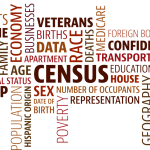
Now I know that you can use the census data to confirm when and where families were at those particular times and they can give a geographic tour in conjunction with a timeline especially if the family was moving around.
But what if that data could help you find a ‘Lost Cousin’ – to quote from the Lost Cousins website – “LostCousins identifies members who share the same ancestors by comparing the information each member has entered on their My Ancestors page. After all, if you and another member have both entered the same relative, the two of you must also be related to each other!”.
Contact is only made via the site and other than the match no details are exchanged until both persons are happy to do so. I have made contact with a descendant of my 2x g grandfather on my maternal side.
Visit Lost Cousins and see who you can find.

That’s a good point, Ronald, and thanks for making it!! My understanding is that FORG is using a Facebook page for more direct exchange, but I (for one) refuse to use FB. But in our case it might be possible for us to meet at District Assembly, if you go to the D5280 gathering in Carson. I’m Secretary for the Downtown Los Angeles Rotary Club (not “the 5” but the small club meeting at the L.A. Athletic Club), and while I don’t attend a lot of District events (as I actually live in Altadena) I do make it a point to attend the annual Assembly.
Gordon Seyffert
Immigrant Gen. Soc. (Burbank, CA) VP & editor